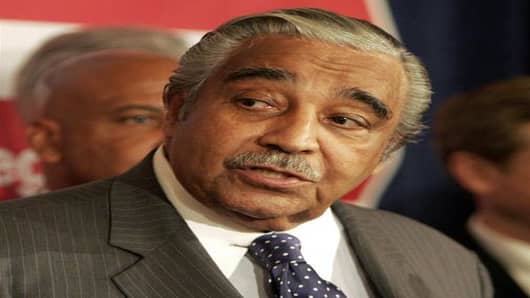The House tax-writing committee has advanced legislation to shield some 20 million middle-class taxpayers from being hammered this year by a tax meant to affect only the rich.
The $77.8 billion package approved by the Ways and Means Committee also extends several dozen targeted tax breaks due to expire, providing relief for education costs, charitable donations, employers of Katrina victims and winemakers. It expands, for one-year, eligibility for the refundable child tax credit.
The core issue in the package, approved 22-13, is the one-year fix for the alternative minimum tax, costing some $50.6 billion over 10 years. Without that fix, those taxpayers exposed to the tax could rise from some 4 million last year to as many as 25 million in the 2007 tax year.
The AMT was created in 1969 to ensure that a very small number of wealthy people could not use tax breaks or deductions to eliminate their entire tax bill. But the tax was not indexed to inflation, and every year more middle-income taxpayers are forced to pay it. Treasury Secretary Henry Paulson, in a recent letter to Congress, said those affected by the AMT could see their taxes rise by an average $2,000.
House to Act Swiftly
Committee Chairman Charles Rangel, D-N.Y. said he had assurances from House Democratic leaders that the full House would move swiftly on the legislation, and there's consensus that Congress must address the issue urgently.
Acting Internal Revenue Service Commissioner Linda Stiff, in letters to Rangel and other congressional leaders Wednesday, stressed that the IRS is now preparing forms for the 2008 tax filing season and 'we estimate that enactment of an AMT patch in December could delay processing of returns for as many as 50 million taxpayers and could delay issuance of approximately $75 billion in refunds.'
Even if the House acts quickly, final congressional approval could be slowed by differences with the Senate over how to pay for the package, or whether it is necessary to pay for it.
'I hate to believe that we are on the brink of 23 million people being held hostage' to a filibuster by Senate Republicans objecting to finding new tax revenues to make up for the AMT fix, Rangel said.
House Democrats are committed to offsetting new spending or tax cuts so as to avoid adding to the federal deficit. But President Bush and many in Congress, led by Republicans, object to fixing the AMT by raising taxes.
Paulson, in a statement after the committee vote, said that "the fact that this legislation raises taxes that would hurt our economy makes it very difficult for a patch to be passed quickly."
Rep. Jim McCrery of Louisiana, top Republican on Ways and Means, said: "It is clearer than ever that Congress must provide an 'AMT patch' as soon as possible, and that the only realistic alternative is to do so without tax increases."
Closing Breaks for Investors
The bill is paid for mainly by closing tax breaks for investors: it would prevent investment fund managers from paying taxes on some services at lower capital gains rates and prevent hedge fund managers from using offshore tax haven corporations to defer taxes on compensation received from investment services. Another provision would delay until 2017 implementation of a new liberalized rule for allocating interest expenses between U.S. and foreign sources in determining foreign tax credits.
Congress in recent years has scrambled to do temporary AMT fixes while promising to work on longer-term solutions. Rangel last week outlined a massive tax overhaul bill that included permanent repeal of the AMT, at a 10-year cost of $800 billion. Republicans immediately attacked the revenue raisers in the package and Rangel acknowledged that it will be next year before it is ready for legislative action.
The bill approved Thursday also includes legislation, already passed by the House, that would terminate an IRS program of contracting out debt collection to private collection agencies. Another House-passed bill included would give a tax break to homeowners who have mortgage debt forgiven as part of a foreclosure or renegotiation of a loan.
Some Major Provisions
Among the tax relief extensions, with 10-year costs, included:
- Extends for one year the deduction for state and local general sales taxes, at a cost of $2.3 billion.
- Extends the above-the-line deduction for qualified tuition and related expenses, at a cost of $2.5 billion.
- Extends the $250 above-the-line deduction for teacher expenses, covering personal costs to buy school supplies.
- Changes the child tax credit, now refundable to the extent of 15 percent of earned income above $11,000. The bill would reduce that to income above $8,500 for 2008, at a cost of $2.9 billion.
- Extends for one year the research and development credit, at a cost of $9 billion.


